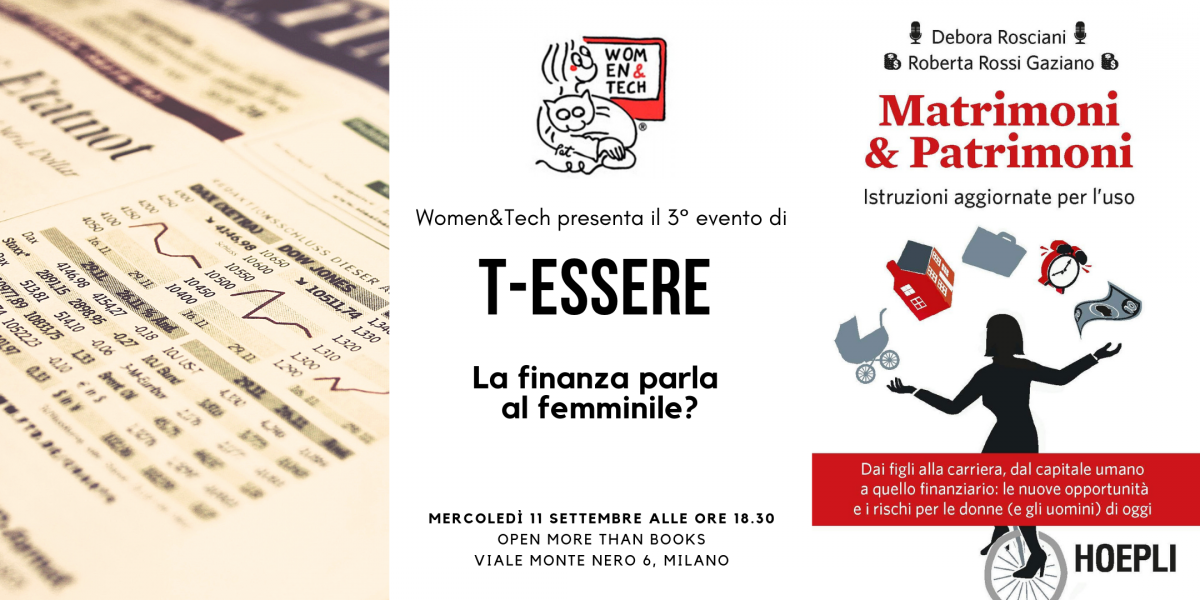
Facing the economic challenges that await the female world has never been so urgent. Many women are not aware of the economic, legal, and technological context that can disrupt their lives. How to face these economic challenges today? "Marriages & Estates" (Hoepli Publisher) written by Debora Rosciani , journalist of Radio 24 and Roberta Rossi Gaziano , independent financial consultant, provides women (and men today) with an ideal toolbox to face an increasingly challenging context. Especially for women.
We have discussed it with:
- Debora Rosciani, journalist, Radio24
- Roberta Rossi Gaziano, CEO, SoldiExpert SCF
- Barbara Alemanni, affiliate professor of banking and insurance, SDA Bocconi School of Management
- Milena Bardoni, senior private banker, Banca Mediolanum
The meeting was moderated by Paola Rota, author and presenter.
Specific factors such as frequent financial dependence, longer life expectancy, more discontinuous careers, meager pensions, and limited familiarity with the world of investments make women a more at-risk category for impoverishment.
In Italy, one out of two women does not work, and this poses a risk for single-income families as the advent of automation could make entire categories of workers obsolete, even in sectors considered absolutely secure.
Married women who are not financially independent are more at risk today. In recent weeks, the Cassation Court denied alimony to Veronica Lario (former wife of Silvio Berlusconi), confirming the new trend in family law that emerged in May 2017 with the "Grilli ruling". Once the right to maintain the same standard of living ceases, rough terrain opens up for the spouse who is forced to request alimony due to lack of financial independence.
Women face an additional specific risk known as longevity risk, literally the risk of outliving their own wealth, due to their longer life expectancy combined with modest pensions. Elderly women living alone are among the categories at highest risk of poverty according to Istat.
The lower financial literacy of women is another sore point, making them more prone to cognitive distortions. A country that continues to hold over 1300 billion inactive in current accounts and has home ownership as the main source of family wealth is at risk of impoverishment. We are not yet at negative interest rates on current accounts, but obtaining positive returns by playing it safe is increasingly challenging. Real estate prices, except for some happy exceptions, face scarcity of demand and falling prices in many areas of the country. Equipping oneself with the minimum basics to face the world of investments, understand the current economic context, and plan one's financial future is important to avoid experiencing anything but happy decline. A toolbox is needed to face the challenges that await us unprepared. So that one day we won't have to say, "If only I had thought about it earlier."
